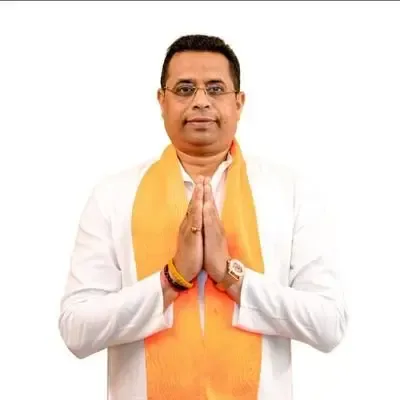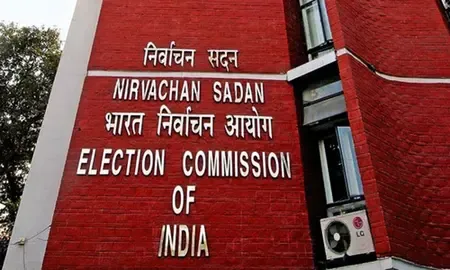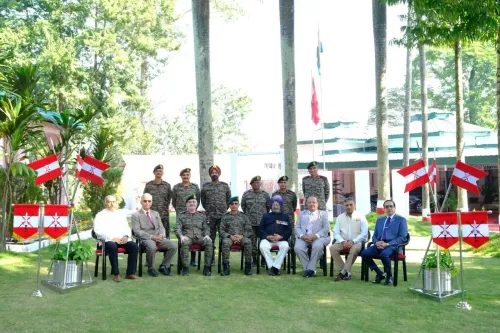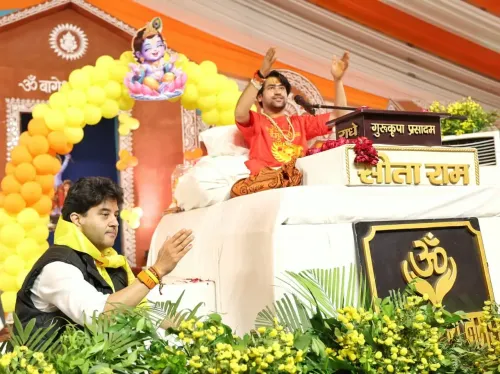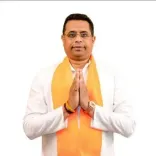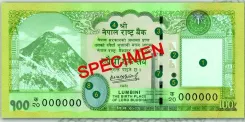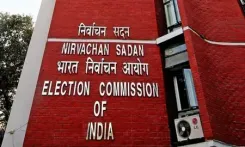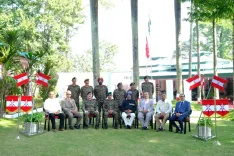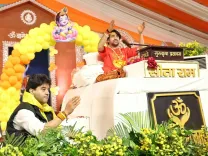How Did the Tamil Nadu Governor Honor Patel as the Architect of Unity at Sardar@150 Padyatra?

Synopsis
Key Takeaways
- Sardar Vallabhbhai Patel played a crucial role in India's independence.
- He was instrumental in the integration of 562 princely states.
- Patel's legacy continues to inspire national unity today.
- Leadership is about honoring historical contributions.
- The importance of moral authority in governance was emphasized.
Anand, Nov 27 (NationPress) The second day of the Sardar@150 National Unity Padyatra, hosted in Asodar of Anand district, served as a poignant reflection on India’s civilizational roots and the monumental legacy of Sardar Vallabhbhai Patel.
The Governor of Tamil Nadu, R. N. Ravi, addressed the assembly, stating that India is experiencing a significant moment in its history, with Prime Minister Narendra Modi guiding the nation to unprecedented heights through a blend of moral clarity and practical vision.
The Governor underscored Sardar Patel’s unparalleled contributions to the nation, describing the journey from the land of his labor to the world’s tallest statue in Kevadia as a symbolic narrative of India’s unity.
He asserted that no community or nation can progress without honoring its forebears, referring to Sardar Patel as a “path-breaking visionary” whose legacy has shaped the modern Indian framework.
While reminiscing, Ravi pointed out three pivotal achievements of Patel — aiding in India’s independence, uniting 562 princely states, and leading the historic peasant movement in Bardoli.
He emphasized that Patel was not merely Gujarat’s Sardar but India’s true Sardar, a title conferred by Mahatma Gandhi in the presence of Jawaharlal Nehru.
He added that while Bismarck spoke of the “policy of blood and iron,” Patel genuinely embodied the moral authority associated with the title of the Iron Man.
The Governor elaborated on the significant challenges involved in merging princely states, each possessing its own armies, treasuries, and law enforcement. He remarked that without Patel's resolve, India's independence would have been an incomplete endeavor. He noted that had Patel managed the Kashmir situation, many contemporary challenges may not have arisen.
Union Minister of State S. P. Singh Baghel, who attended the event as a special guest, lauded Patel as the “architect, unifier, and great hero” of India's unity.
Baghel expressed that despite efforts over decades to downplay Patel’s significance in history, he remains deeply embedded in the hearts of the Indian populace.
He expressed gratitude to Prime Minister Modi for reinstating Patel’s rightful position in the national consciousness and admired the remarkable enthusiasm witnessed during the padyatra.
Reflecting on the past, Baghel described how the British left behind over 562 princely states poised for independence and how Patel unified them within a span of two years through an exceptional mix of firmness and diplomacy.
He highlighted the internal political hurdles Patel faced, noting that even the then-Prime Minister hesitated to act decisively on Hyderabad, whereas Patel forged ahead for complete national integration.
Baghel also credited Patel for bolstering Mahatma Gandhi’s mass movement and recalled significant moments — from abolishing exploitative practices like veth pratha to leading the Nagpur flag satyagraha when the tricolor was banned.
He stated that Gandhi had entrusted Patel with the duty of advancing the non-cooperation movement during his imprisonment, a testament to the profound trust between the two leaders.
The event commenced with a welcome address by Deputy Collector Jagdish Makwana, who elaborated on the vision behind the Sardar Gatha. Numerous community leaders from Asodar were honored during the ceremony. MP Mitesh Patel, MLA Chirag Patel, district panchayat president Hasmukh Patel, and other dignitaries graced the occasion along with a large gathering of villagers.

